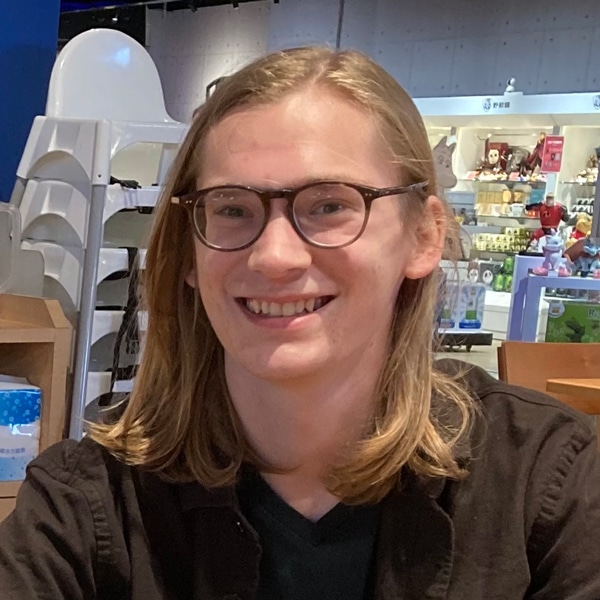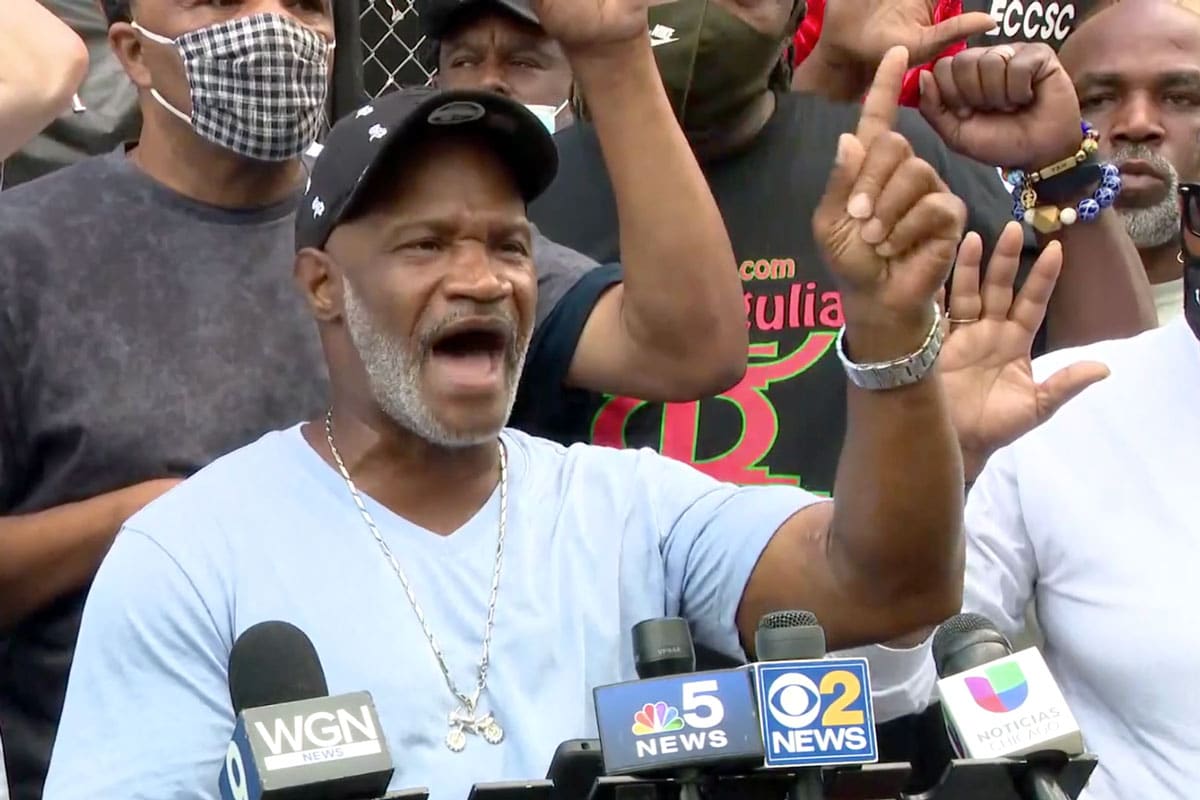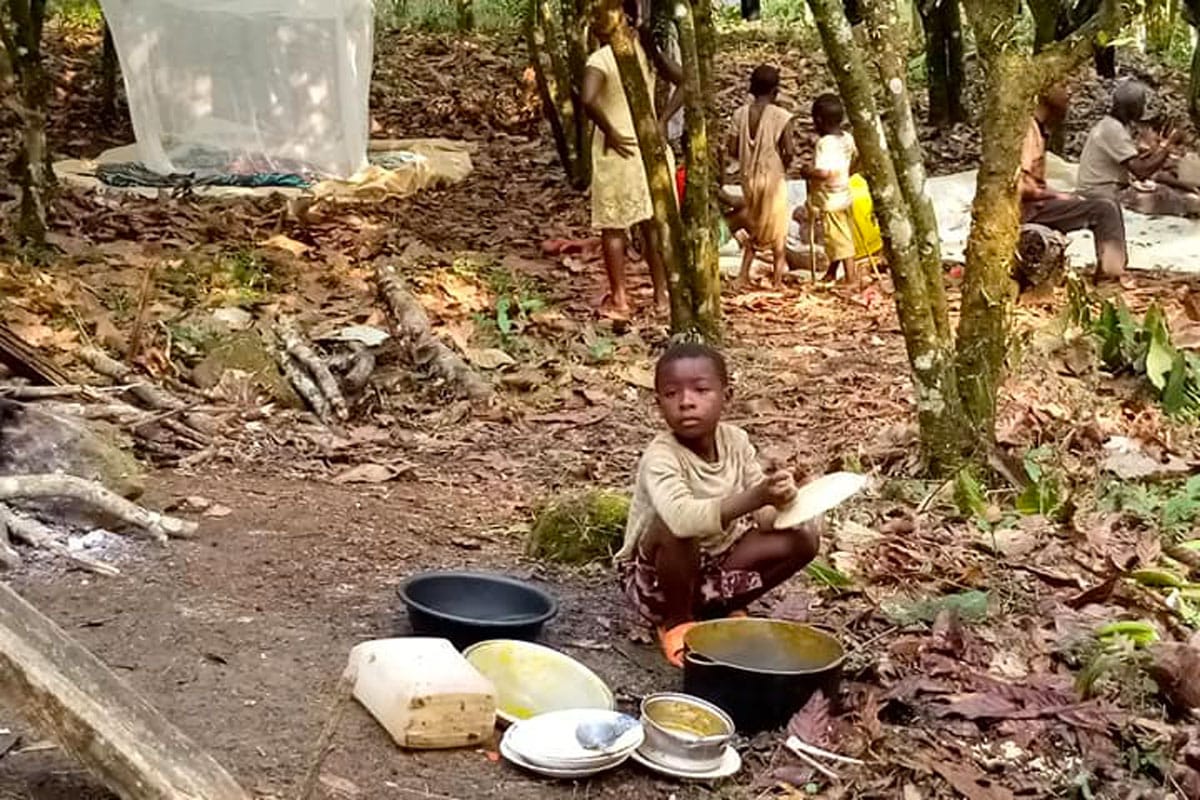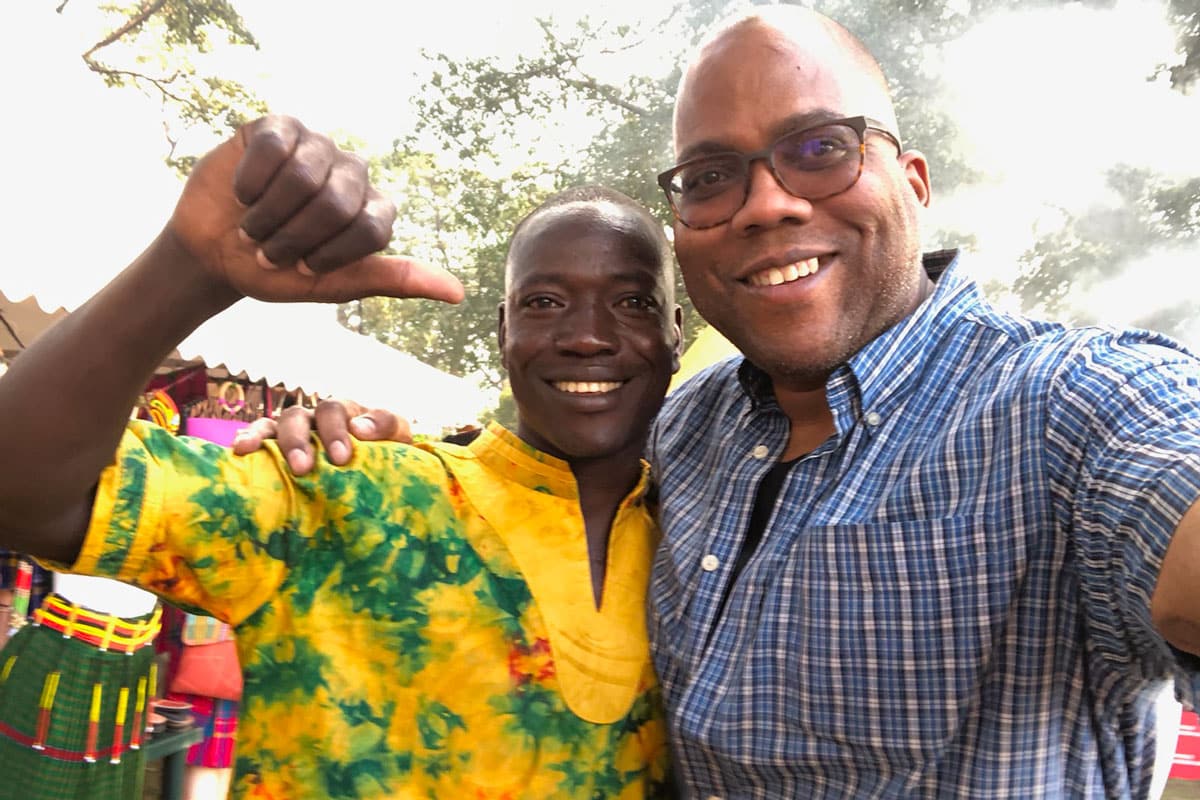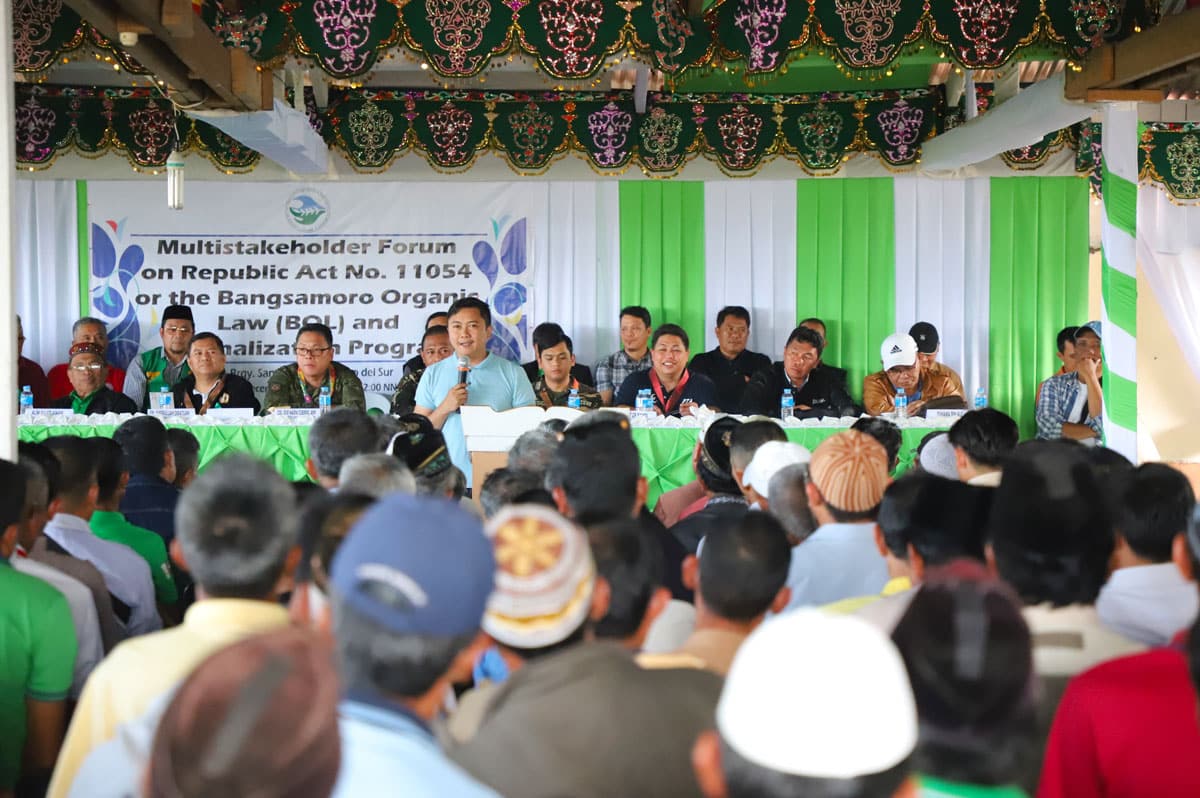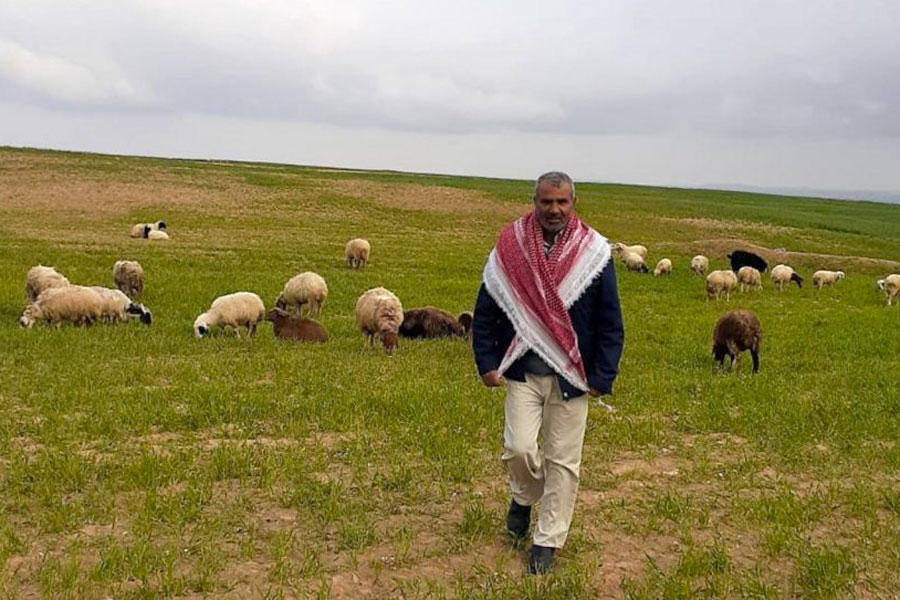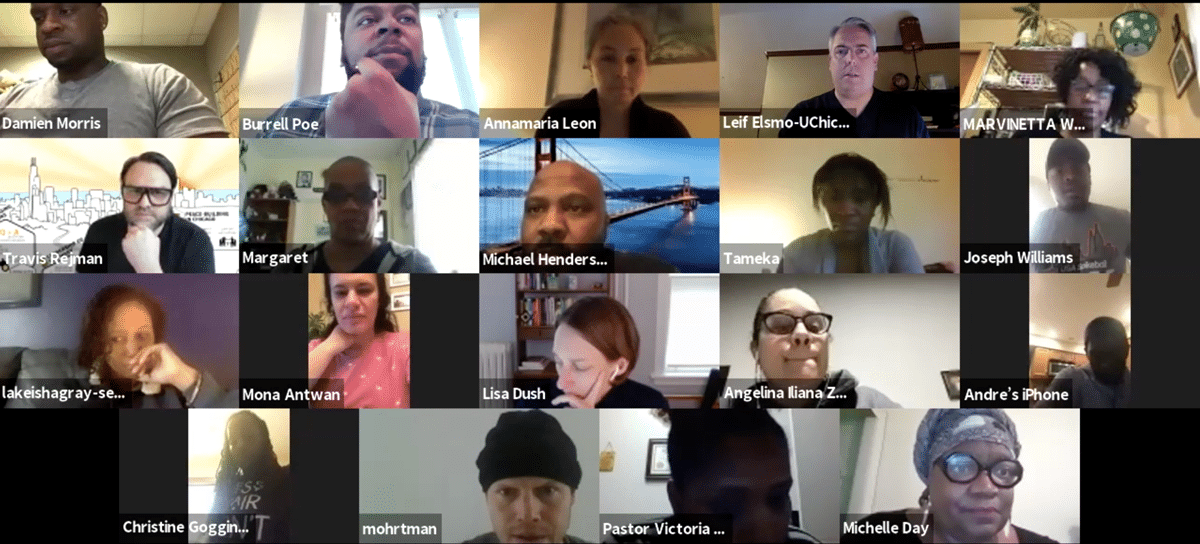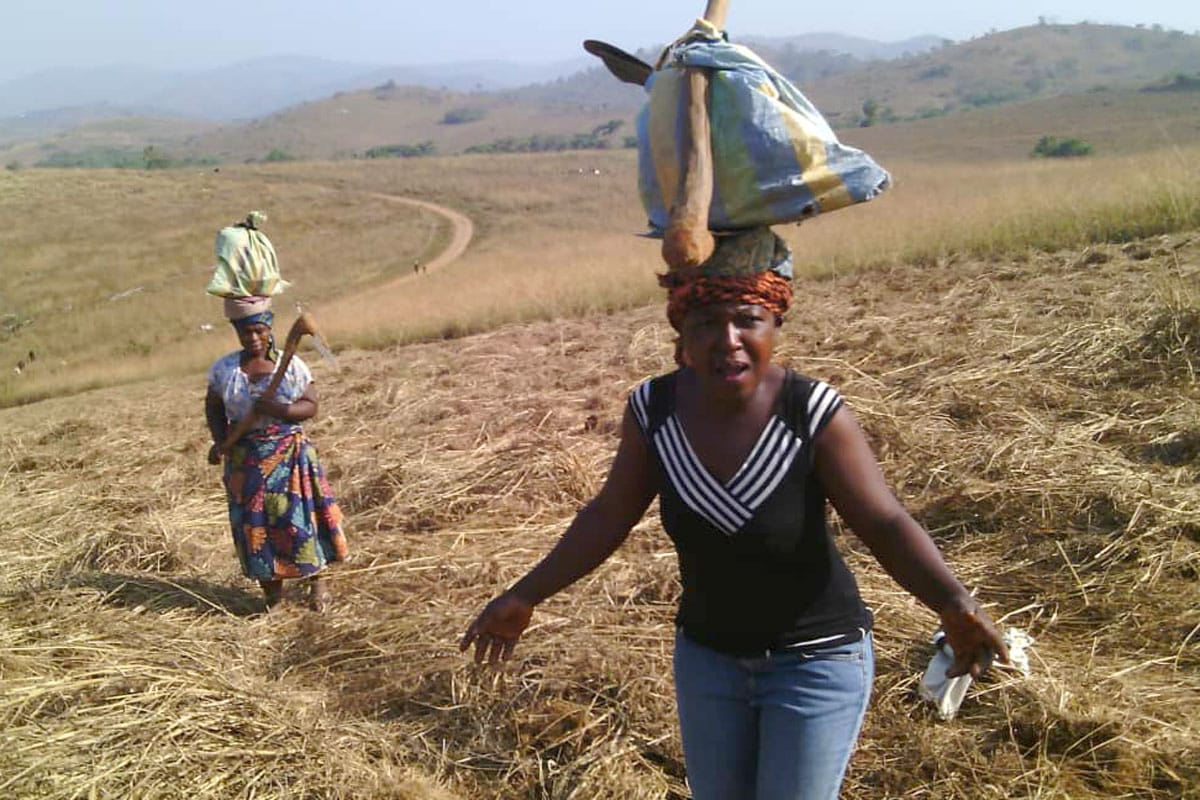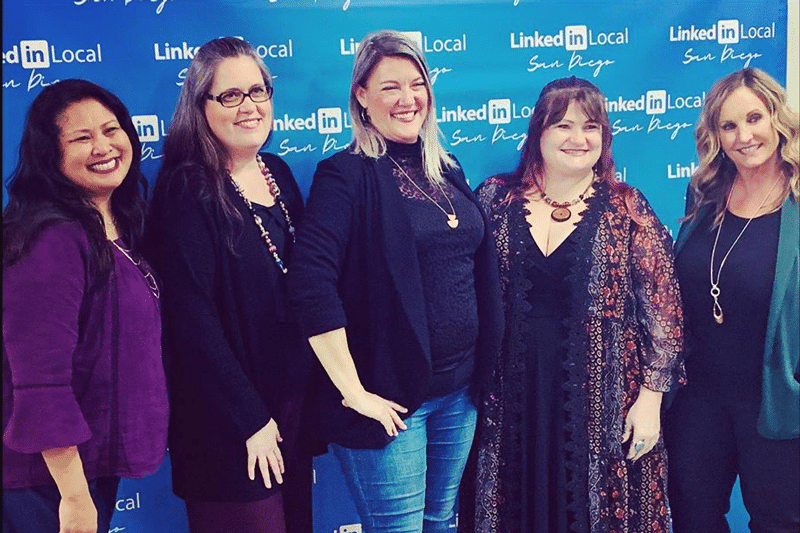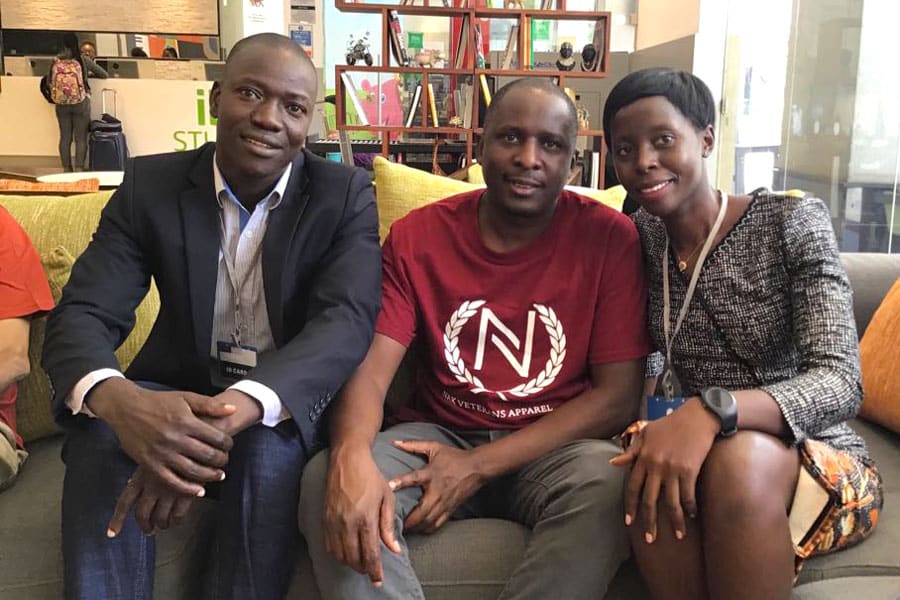Every One of Us is Better Than Any One of Us
By Yusuph Masanja, Co-Facilitator, Global Alumni Network
We want to teach young people how to be productive, we don’t just give them jobs! We ensure they can keep the jobs and grow to creating their own jobs
Raymond Richard, Goldin Global Fellow
Raymond emerged from struggles of homelessness, criminal activities and substance abuse to become a mentor, activist, and public speaker. He works tirelessly to decrease neighborhood violence and contribute to a safe environment for children and families across the United States. Driven by the urge to help young men and women become productive members of society, Raymond founded Brothers Standing Together (BST) in 2009, a year later after being released from his sixth incarceration.
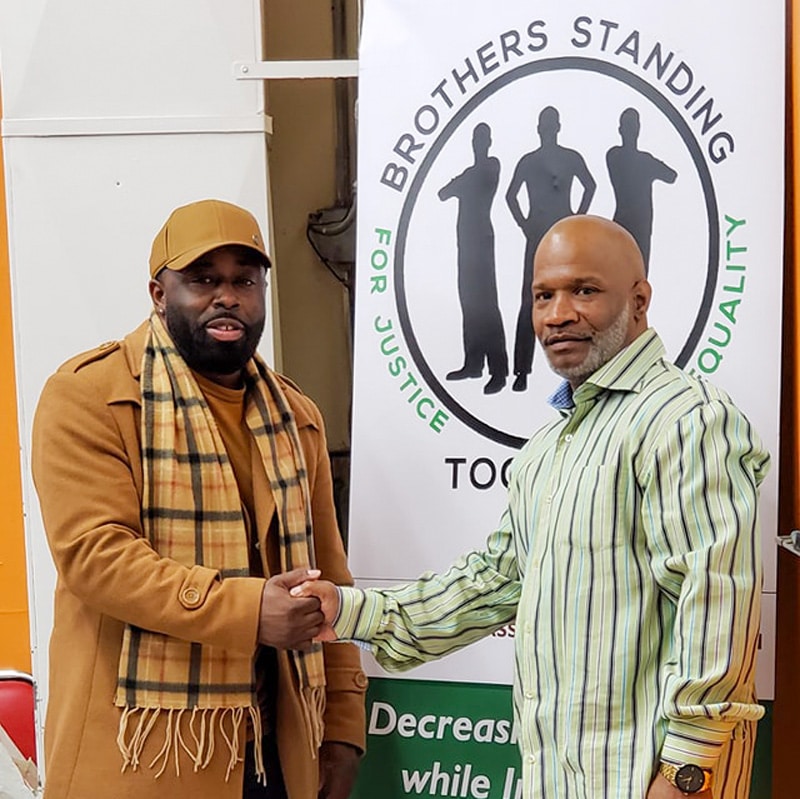
BST has empowered over 1,500 youth through different programs, including but not limited to, practical skills training such as carpentry, plumbing, welding, painting, bricklaying etc. Raymond provides lifelong traits that help youth find a purpose in life. BST programs also assist youth with obtaining Identity cards, birth certificates, license, housing, meals and employment.
“65% of young men in the city of Chicago don’t have IDs, every time they are stopped by police, they are labeled as John Does.” Raymond says.
BST is partnering with County jails to provide opportunity for community service work. At BST, Exemplary volunteers often get enlisted for available job opportunities. During the pandemic, it has become challenging for BST to reach youth, especially the homeless.
COVID has decimated our community outreach, I am often outside seeking job opportunities for our youth or speaking with youth because most of them are outside–you have to be grassroot to serve them better. It’s now difficult to reach out to those who are mostly likely to shoot or be shot, we try to keep communication open with caregivers and parents through emails.
With 15 staff, BST tries everything to reach more youth, but more help is needed. Ray shared, “With all the good help we provide, we don’t even have the help that we need, and that’s our struggle. That’s why I created the Brothers Standing Together LLC program in order to help the nonprofit.”
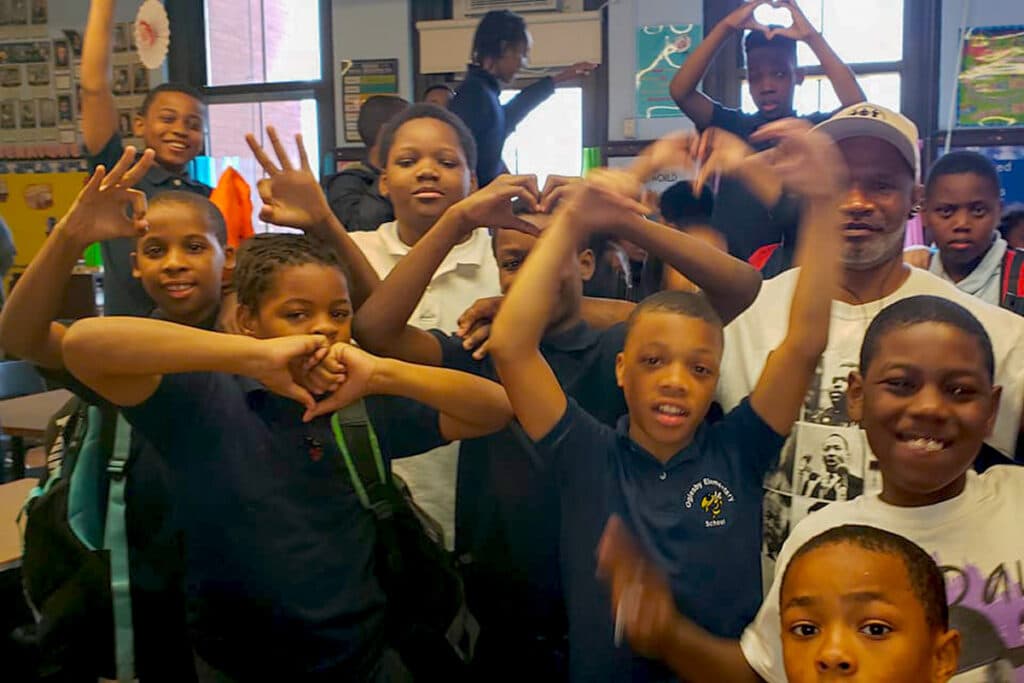
Raymond has been a strong advocate against the shootings of Tamir Rice, Mike Brown and Eric Garner. His advocacy work has been featured broadly on CNN and MSNBC media. Among other advocacy, he continues to lobby for a change of legislation affecting returning citizens, the term he advocates to be adapted for formerly incarcerated individuals, because the majority of them are now productive members of society like himself. To reiterate the puzzling question his mentor uses in advocacy, Raymond asks “Where do my wrong ends and my rights begin?"
Raymond calls on all Goldin Global Fellows to stay connected and united, because the struggle against violence is not only in America but worldwide. He would be happy to hear from any fellow interested in collaboration or needing any assistance that he can provide. He says “every one of us is better than any one of us” Brothers Stand Together needs us to keep them uplifted as they keep us uplifted.
Enough is Enough: Fellow Raymond Richard Calls for Peace After Senseless Murder
In the wake of the senseless murder of 9-year old Janari Ricks, Global Goldin Fellow Raymond Richard joined peace builders from across the city to host a call for an end to the violence that is on the rise in Chicago.

The Founder of Brothers Standing Together, Raymond is also a resident of the near north side community where the murder of Janari Ricks took place. The murder hit home for Raymond in a personal way, as Janari is part of his extended family.

This is my community. I came back home to help as many people as I can help and save as many lives as I can save. Unfortunately, his life wasn't saved. So that means we dropped the ball. The men dropped the ball.
In his impassioned plea for the murders to stop, Raymond continued:
But we are here to say today, "Enough is Enough" and it's over with. We will no longer stand by idle while our children are being slaughtered at an alarming rate.

After calling for the shooter to turn himself in, Raymond continued:
To the children: I pledge to do all I can do to make your lives safe, even if it means laying down my own life... We as a people must get involved to stop the bloodshed of our people. It doesn't matter the color. We're dying at an alarming rate and we must take a stand now.
Raymond Richard is an Alumnus of the inaugural class of Global Goldin Fellows in 2018, a cohort of 20 passionate grassroots leaders from 16 countries from Africa, Asia, Europe, the Middle East and North and South America.
Click here to read the watch the video on WGN9 News.
Caught between Two Wars

Over the past four years, I have painfully witnessed my country of Cameroon be ravaged by a steadily escalating war which has displaced thousands of civilians internally, and into neighboring countries. As the president of Community Green Engagement (COMGREEN), I and my colleagues have strived to ensure the communities which we serve not only have sustainable access to food, but also engage communities on existential climate change issues.

In the current period, we have been forced to watch, helpless to prevent the entire destruction of villages because of the fighting. Many flee to places such as Bamenda, where Community Green Engagement has its headquarters. run to the major towns like bamenda where we have our headquarters. Unrelenting gunfire and the sincere risk of interpersonal violence by warring groups makes it nearly impossible for us to work.

Further, due to the deadly clashes which have mostly been in the rural areas, farmers and ranchers have abandoned their properties leading to drastic food shortages. Now, the consequences of the COVID-19 pandemic are upon us as well. Though we have few confirmed cases of virus infection, like too many countries throughout Africa and around the world we struggle with rigorous medical testing for the disease. Additionally, the police and military are seizing the opportunity offered by the pandemic to further restrict civilian movement by enacting curfews, and deep fines for those who are outside of their home without official permission, or subjectively valid reasons. Some have been beaten for these reasons as well.
With the support of the Goldin Institute. Community Green Engagement is launching a FaceBook fundraising drive to secure foodstuffs and livestock for Bamenda and the surrounding areas we serve.

It is a very difficult time for us here in Cameroon, but Community Green Engagement continues to offer resources, training and hope. Before the fighting in Cameroon, between Anglophone and Francophone factions, COMGREEN maintained a beekeeping project, gardening, and oversaw the construction of a community center through regular civilian-focused consultations, Many stakeholders came together to discuss our most pressing problems and collectively come up with solutions. We pray the time will come again soon when we can resume such inspiring outcomes, again.
Click Here to Support the Community in Cameroon
Transitions for our Director of Community Learning and Collaboration

This may not be my final contribution to the Goldin Instiute’s newsletter, but to be sure it is the most difficult to write.

After six years, I am leaving Goldin Institute to work with the Skoll Foundation in northern California. In my new role as a Principal of the foundation, I will help oversee grantmaking to social entrepreneurs throughout the world, as well as support collaborative funding efforts to better reach communities most in need.

Since the outset of my tenure at the organization, I have been blessed to not only gain a brother in arms and lifetime friend in Travis Rejman, but also get to know and work alongside some of the most dynamic, seemingly tireless people I’ve ever had the opportunity to meet. With no small degree of sadness, I will miss them profoundly.

The vision shared by Diane Goldin and Travis Rejman is one that captured my imagination with its raw clarity as well as its polished authenticity when I first learned of the Goldin Institute, and it still does. From my view at Skoll, I am committed to supporting that vision and the work of my colleagues to the fullest of my capacity.

To the larger community it has borne, I do hope I will still be seen as treated as a member, and ally. Though I will not formally be a part of the Goldin Institute’s working team I remain very active in supporting the individual efforts of its fellows and global partners, including the monthly roundtable dialogues.
Progress in the Peace Negotiations in the Philippines

The Comprehensive Agreement on the Bangsamoro (CAB) signifies a great milestone of peace negotiations over decades of talks in the Bangsamoro region in southern part of the Philippines. It is significantly the compilation and sum total of all the agreements, declarations, joint statements, principles and mechanisms reached and agreed upon between the government and the Moro Islamic Liberation Front (MILF) from the start of the peace talks in 1997 up to March 2014.

The principles of the negotiation recognized the justness and legitimacy of the cause of over 3,256,140 Bangsamoro people, their aspiration for the meaningful autonomy through a democratic process, the aim of finding a solution to the Bangsamoro question with honor, justice and dignity and the aim to end the fighting between the government and the MILF. The Bangsamoro Autonomous Region seeks to replace the Autonomous Region in Muslim Mindanao (ARMM) with a political entity that shall possess broader powers to address the decades-long aspiration of the Moro people for meaningful self-rule over their ancestral homeland, and that is where the Bangsamoro government now.
The Bangsamoro Organic Law realized another step to continue the infrastructure of peace process as stated in the CAB. This is to put in place and frontline the clear roadmap that will provide direction to transitional justice and reconciliation measures for the Bangsamoro struggle. It serves as mark of the commitment for peace as it proposes conflict transformation mechanisms on the ground.

The existence of normalization bodies in the CAB ensures human security and helps build a society that is committed to basic human rights where individuals are free from fear of violence and long held traditions and values. Under of which is the Joint Normalization Committee (JNC) which undertakes the process of normalization, Joint Peace and Security Committee (JPSC) that develops policies and operational guidelines for the effective partnership of the JPSTs and Joint Peace and Security Teams (JPSTs) as working for the maintenance of peace and order and the stability of the areas mutually identified by the GPH ( refers to Government of the Philippines) and the MILF. On the other hand, Independent Decommissioning Body (IDB) is mandated to oversee the process of decommissioning of the MILF forces and weapons.
The socio-economic programs were intensified on development efforts for rehabilitation, capacity building initiatives, reconstruction and institutionalizing programs to internally displaced persons (IDPs), and poverty-stricken communities. The Joint Task Force for Decommissioned Combatants and Their Communities (TFDCC) was established also to assist the panel to identify and implement socio-economic priorities and development projects for decommissioned MILF combatants and their communities.
The ceasefire mechanism including the Coordinating Committee on the Cessation of Hostilities (CCCH), International Monitoring Team (IMT) and Ad-Hoc Joint Action Group (AHJAG) are collaboratively working in the commitment to a general ceasefire necessitated to the ongoing peace talks and in the ironing out security issues and concerns in accordance with the security protocols agreed between the GPH and MILF. These are the on-going work and established commitment of both parties that will be reinforced its implementation.
There would be struggles in the transition period.
Lo Ivan Castillon
But, the pressing support and collaborative participation of international community to the Bangsamoro government provides significant account on the covenant established and put in place the sincerity of the government leaders to pursue it. There would be proactive and reactive measures in accompanying the transition phase, education, continuing campaign against potential bottleneck and organized working group to explore alternatives.
This would be an opportune time for the Bangsamoro leaders to serve and govern the Bangsamoro community as to ascertain their confidence and capacities on moral governance in responding to basic needs, reducing poverty, bridging social gaps, eliminating anti-social activities, improving human security, improving peace and enhancing unity within the territory.
Opportunities offer to challenge various stakeholders and sectors in government, private and civic organizations to work hand in hand in developing different conceptual issues, methodologies, analytical language and institutional practice and strategic approaches on theory and practice of moral governance in the Bangsamoro government.
The future leaders and general public are called for their active involvement in the exploration of the existing and potential linkages in support to Bangsamoro homeland. Moreover, there is a need to strengthen advocacy on peacebuilding, culture of peace, conflict transformation, active non-violence and peace process as long-term goal through series of campaigns, public consultations, fora, research and information and education campaigns among others. This will provide venue in acquiring rich knowledge, experiences and insights of diverse educational communities to benefit mutually through collaboration and solidarity among all stakeholders.
The processes are not just aiming to have the absence of war but are aiming to have a society wherein social justice prevails, economic system creates equal opportunities to all, ecological balanced establishes, respect and honor for uniqueness of one’s culture, traditions and beliefs and development of full human potentials made available.
Indeed, the CAB is the achievement of the present government that concludes the 16th congress and showcased its relevance to peace process and to the Bangsamoro government. As Bangsamoro, there are more to do, more opportunities to grab, more collaborations to link with, and more advocacies to work on towards the Bangsamoro aspirations to have shared vision (with the national government for national unity and reconciliation and within the Bangsamoro for peace and economic stability), shared leadership, good governance, improved peace and security, adequate and proper management of resources and more inclusive dividend of peace.
Responding to COVID-19 in the Bedouin Community

As a minority group within Israel, the Bedouin Community has had a long history of strife in dealings with the Israeli government. During these dire times of Covid-19 the government has failed in many areas to support Negev Bedouins through funds resources and information. As a result many families have been facing unemployment, health and communication concerns. Students who do not have computers can’t do school from home households with over ten people are having trouble with social distancing and unrecognized villages are unable to maintain a sanitized environment due to limited water.
A New Dawn in the Negev has been taking action in three areas:
- Established an emergency Covid-19 Hotline for receiving calls from those in need of urgent care and assistance;
- Proactive outreach through our call-center, managed by our staff and volunteers, to reach out to those that might feel apprehensive or afraid to cross social norms; and
- Building an online platform, still in process, that will generate opportunities to share initiatives, hold discussions and promote peer to peer volunteer ideas.
Through all these approaches we provide both structural and culturally-sensitive opportunities to express their needs and find responses based on solidarity.

[quote]A New Dawn is actively involved in the fight against Covid-19, and our work is effective because we have trust and local knowledge earned over years of experience working with vulnerable communities.[/quote]
We are more than happy to share our knowledge and experiences and coach other organizations who are facing similar situations and obstacles with social-governmental tensions. By working together, we can become stronger and more equipped for our work indivually and collectively. A New Dawn in the Negev is always seeking new connections for resource building and sharing.
A New Dawn’s biggest obstacle now is infrastructure and resources for our current endeavors. We’re working on a phone switchboard, computer tablets, hot line operating software and other activities, as well as an Internet platform via WhatsApp to build online community, and subscribing to an existing platform while adapting to the specific needs of the Bedouin company and training a limited team of operators.

We need to urgently respond to this crisis today, but we also have to rethink our work for the future.
Even before the coronavirus hit our community, our organization was often short on resources, facing neglect from the government, and having to deal with already high unemployment rates and poverty. Now the Coronavirus has given us no choice but to quadruple our efforts and prioritize our programs. We have to safeguard our infrastructure and make it adaptable to the new social norms of social distancing. Before the crisis, meeting people and engaging with them was paramount. Now, we have to apply all our work to a virtual world.
For our community as a whole, the crisis has impacted our way of life and culture. Now more than ever, cultural competency plays a role in the future of our people; we must not forget who we are.
During this time, we have grown virtually connected with our world more than ever before. Our experiences are in need of being shared to others through this heightened medium of communication. Connecting to my network of Global Fellows is critical in this time of physical isolation and the Goldin Institute is definitely one of our greatest partners. We wish to strengthen our ties with all the alumni and otherpartners to build a better future together.
READ MORE:
- https://fathomjournal.org/fighting-back-against-covid-19-in-the-bedouin-community/
- https://www.makorrishon.co.il/news/213227/
- www.b7net.co.il
- https://www.facebook.com/watch/?v=218873629470984
Violence as an Adaptive Challenge
On Thursday, March 26, the Chicago Peace Fellows participated in a workshop titled ‘Violence as an Adaptive Challenge’ with staff members at the University of Chicago Medical Center’s Violence Recovery team. This is the second workshop in the GATHER course, and the Fellows discussed issues related to solving complex, amorphous problems in the communities they serve. They were joined by staff at the University of Chicago Medical Center for Community Health and Vitality, who shared useful information about staying safe from COVID-19 and answered the Fellows’ questions relating to how they can protect themselves and their neighbors. Due to the social distancing efforts going on in Chicago to stymie the spread of COVID-19, this workshop was conducted online via video conference software.

The Violence as an Adaptive Challenge workshop was conducted with the Violence Recovery team at the University of Chicago Medical Center. They started the call by explaining their role in the trauma center, which is to connect with victims of intentional violence, i.e. gunshot wounds, knife attacks and other injuries that come to the trauma center. When they connect with victims, they try to find resources in the hospital and community to help solve other problems they may have besides their injury such as housing, food insecurity or mental health. The program is meant to deal with what they call the Social Determinants of Violence so as to keep people from having to come back to the hospital. The program has been in operation for almost 2 years and started when the Level 1 trauma center opened in May 2018. They explained that they are one of the few violence recovery teams in the nation.
The Peace Fellows asked questions about how their operation works in the trauma center and how successful their work has been. The Fellows also asked about how their work connects with community-based organizations to provide a network of support for the individuals that come into the hospital’s care. The Fellows inquired about how they could collaborate with various community institutions such as the Chicago Police Department. The Fellows shared the various services they provided and offered to support the violence recovery team. Many of the violence recovery specialists are members of the community who have similar backgrounds to many of the victims of violence, particularly gun violence.
“One of the things we are big in is preventing reinjury [victims coming back to the trauma center with new injuries] risk,” explained Dre, a violence recovery specialist. “That starts as soon as they get in. We work to understand if they are in danger or if it is an ongoing situation.”
To round out the call, the Peace Fellows spoke with Dr. Doriane Miller, director of the Center for Community Health and Vitality. Dr. Miller explained basic information that community members need to know about the symptoms of COVID-19 and how the virus is transmitted. The Fellows asked questions and dispelled myths about who can contract the virus and whether certain home remedies are effective.
Please visit the University of Chicago Medicine website for more information. Or visit the City of Chicago COVID-19 Portal.
GATHER Alum Supports Community Amidst Conflict in Cameroon
By Jimmie Briggs, Director of Learnign
In the last two weeks alone, more than 8,000 Cameroonian refugees have streamed across the border into neighboring Nigeria, fleeing an increasingly high intensity conflict between the national government and English-speaking militias seeking to form a breakaway state called “Ambazonia.” For Global GATHER alumnus Alexander Gwanvalla, the deteriorating situation has placed ever greater burdens on the work of his organization, Community Green Engagement. Speaking by phone last weekend from northwest Cameroon where he lives and works, Alexander described a crisis situation with food and resources rapidly dwindling.

“Farming activities are mostly carried out in rural areas and due to the deadly clashes happening now between soldiers and militias, farmers have fled and abandoned their farms,” he explained.
“This has resulted in dire food shortages because the food sources are no longer available. There is a state of insecurity, some of our members are also fleeing the country, and we are also facing ‘lockdown’ days where we cannot leave our homes and go to work because of the danger.” -- Alexander Gwanvalla
In total, 60,000 Cameroonian refugees have left the country for Nigeria, and even to the United States.

In practical terms, constant gunfire and risk of other physical violence by one of the warring groups makes it next to impossible for Alexander and his colleagues to meet with community decision-makers and thought-leaders. During last week’s elections on February 9, separatists from the English-speaking part of the country imposed a six-day lockdown on all civilian movement and reiterated their demand that English-speaking senators and parliamentarians quit the national senate and parliament. They’ve consistently threatened the lives of individuals who engage the legislative bodies in any way.

Last December, Cameroon’s parliament granted special status to the northwest and southwest regions of the country, which are predominantly English-speaking. Despite those concessions toward autonomy, the militias have pushed back for years against perceived disenfranchisement by the country’s French-speaking majority. The struggle for independence by the insurgents has been the biggest challenge for President Paul Biya, in power for four decades, even as the country faces off against Boko Haram terrorists who’ve long ravaged the Lake Chad Basin.
Though his work with Citizens Climate Lobby has been dramatically hampered since 2017, Alexander and his community allies continue to create impact in their region, in spite of the existential challenges.
“We have continued to focus on building our community assets via consultation and this approach has been welcomed,” Alexander said.
“We usually carry out our activities during days that are calm and mostly in areas not really hit by the crisis. Normally, we take all precautions before going out. So far, we have planted trees, installed beehives, and hosted radio programs on the rights of the child at a local radio station.” -- Alexander Gwanvalla
The conscription of child soldiers by militia poses a threat to a community’s youth.
“Food, food is a biggest challenge now,” he continued, “being able to access it as the fighting goes.”
SHYNE On You Crazy Diamond
For two weeks starting on January 17, Shyne San Diego—founded and led by Global Gather alumnus Cynthia Austin—partnered with area organizations in the San Diego and Orange County area to mount a first-of-its-kind exhibition on sexual and human trafficking entitled, “Behold Her: Portraits of Survivors of Human Trafficking” at You Belong Here, a co-working and community events space in San Diego.
An exhibit of photographic portraits of trafficking survivors by Amari DixonPhotography, “Behold Her” is the first photo exhibition undertaken by SHYNE. More than 100 people attended the premiere evening, and Cynthia said the highly successful endeavor was the culmination of a long-held dream.

Cynthia supporting Women in Business at the #linkedinlocalsd kick off 2020 event in San Diego hosted on January 31, 2020.
“I knew from the beginning that the survivors’ voices were the key to reshaping the public’s view of then,” she explained.
“The message I believe people took away from the show is hope. Each image represents 1000 victims of trafficking in San Diego every year. These women give hope to those victims as examples of what is possible with community support and a desire for change. Each image also represents a woman giving back to other victims by providing services, work opportunities and resources to assist with healing.
One of the survivors, Jessica, said it best:
"Nothing that has happened to me in the past will hold me back. I am here. I am empowered. I am a new person. I am breaking all stereotypes...Something that somebody else did to me is going to put a label on me? I don't think so! That’s not going to happen. That's not who I am.’”
The city of San Diego, California, ranks eighth-highest in the United States for intensity of Commercial and Sexual Exploitation of Children (CSEC) and drives an estimated $810 million in the underground sex economy.
“My vision for SHYNE in 2020 [is to] continue building the Survivors Business Network, where survivors and businesses with NGOs (non-governmental organizations) work collaboratively to support the women, girls and children who survive trafficking.”
Two days after the exhibit opening, a Survivor Business Pop-Up Boutique was held at You Are Here. The timing of the show was not coincidental, as National Human Trafficking Awareness Month is observed annually each January in the United States.

Cynthia participates in the January 24th Media Symposium: Changing the Narrative/Media Impact on the Human Trafficking Movement hosted by the South Bay Coalition to End Human Trafficking with Amy McClelland Bril and Ana Mony.
Cynthia and SHYNE’s journey began a little over a year ago, and she remains steadfast in her desire to not only provide holistic support to survivors, but also to let “people know that [survivors] get caught in a life of exploitation due to their upbringing, where some form of abuse occurred making them vulnerable to predators.
"When a victim can feel their inherent value and understand it wasn't their fault, that there's nothing wrong with them, there is a turning point in their lives. I hope this work will perhaps help society to stop blaming victims for the suffering they've endured. I hope it gives people empathy, compassion and understanding about exploitation, it's nature and what we are up against with sex trafficking.”
After the show, “Keelin,” a pseudonym for one of the women whose portraits was hung as part of the exhibition, wrote to Cynthia. Eerily, the exhibition was on the same street where she’d been first sold for sex by the individual who trafficked her. "You have helped me share my voice and my story and it means the world to me,” Keelin wrote to Cynthia. “I will always cherish our friendship and will support you in any way I can."
Global Fellows Meet in Kenya
By Geoffrey Waringa, Goldin Global Fellow, Kenya
On Feb 3rd, 4th and 5th, GATHER global alumni from Uganda Miss Diana Alaroker and Geoffrey Omony of Youth Leaders for Restoration and Development (YOLRED), the first organization designed and run by former child soldiers, attended an Anti-Slavery Knowledge Network workshop in Nairobi, Kenya.

During the workshop, they made time to link up with me, GATHER Global alumni from Kenya Mr. Jeff Waringa, and it was a very joyful meet-up for people who have virtually know each other for more than a year but never met physically.

The three of us had very fruitful discussions centered on the possibility of working together on a regional scale. We noted the challenges of real time communication with all GATHER fellows from the East African region due to engagements and access to online communications amongst them. However, we made a commitment to start the conversation and get something going that the rest of the East African fellows could join later.

They made arrangements for a further meeting the next day which was the Ugandans’ day of departing. They made time to meet in between other meetings and on the ride to the airport. On the last day, they visited Goldin institute’s partners Arigatou Kenya offices in Nairobi, where they also had very pleasant discussions with Dr. Dorcas Kiplagat about the YOLRED projects in Uganda. Dorcas and I also had a pleasant meeting, and I updated her on my work in Kenya and the challenges I’m facing in combating the wave of violent extremist radicalization on the Kenyan coast.

The meetings ended well and commitments were made to remain in constant communication towards further collaborations.
